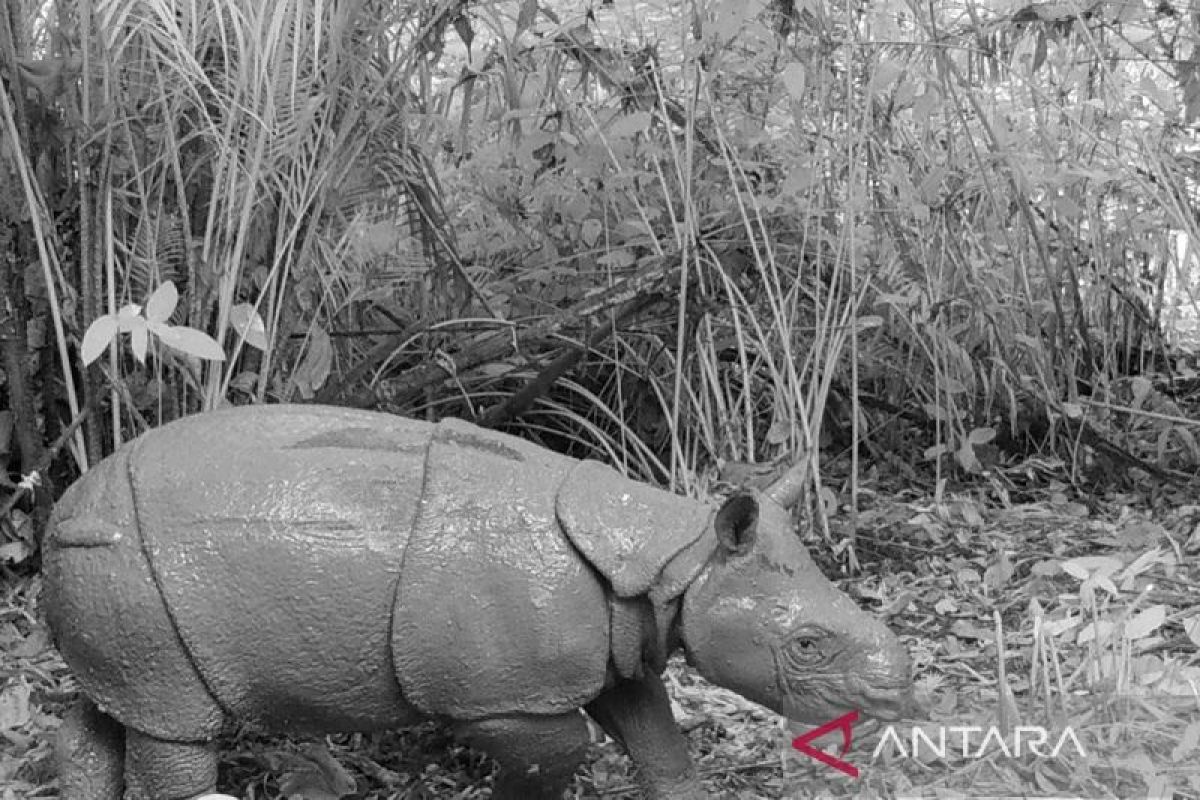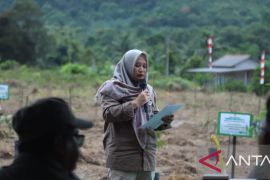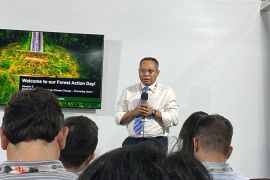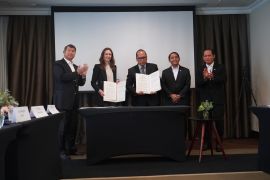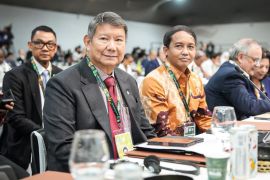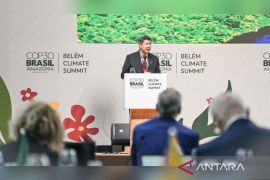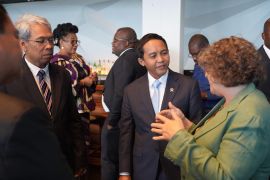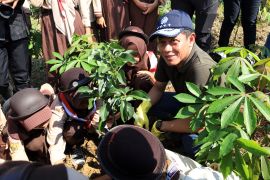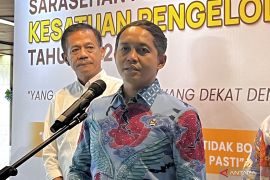"This is not merely relocating rhinos, but a collective effort to save the future of a species on the threat of extinction. Synergy between the government, academics, conservation institutions, and the community is key," the Deputy Minister of Forestry, Sulaiman Umar Siddiq, said on Friday.
The ministry will strengthen Javan rhino conservation efforts through a translocation program from TNUK to the Javan Rhino Study and Conservation Area (JRSCA).
The translocation was planned from the Javan rhino's natural habitat on the Ujung Kulon Peninsula to JRSCA in Ujungjaya Village, Pandeglang District. Both are within the TNUK area with a distance of approximately 14 kilometers by sea.
This step is a national priority strategy to reduce the threat of extinction for a species that currently only remains in this single habitat, Siddiq explained.
He addressed that the decision was made based on scientific studies stating that the Javan rhino faces high risks due to limited habitat capacity, low genetic diversity, and an inbreeding rate of 58.5 percent.
Population Viability Analysis (PVA) by the ministry also predicts that this species could become extinct in less than 50 years without significant intervention.
Siddiq noted that the translocation was carried out to establish a second population, improve genetic diversity, and ensure the species' sustainability through modern technology-based management such as Assisted Reproductive Technology (ART) and biobanking.
Previously, the Ministry's Directorate General of Natural Resources and Ecosystem Conservation (KSDAE) conducted a simulation of using amphibious vehicles to translocate the Javan rhinos on May.
The 1st Marine Artillery Transport Amphibious Vehicle Battalion (Yonkapa) held a simulation on the Kapa K-61 Combat Vehicle in Jakarta on May 28 to test the ability to transport the Javan rhino cage across the sea.
Related news: Ministry claims Indonesia sole guardian of Javan rhinos
Related news: Ministry plans Javan rhino translocation for genetic diversification
Translator: Prisca Triferna, Resinta Sulistiyandari
Editor: Arie Novarina
Copyright © ANTARA 2025
